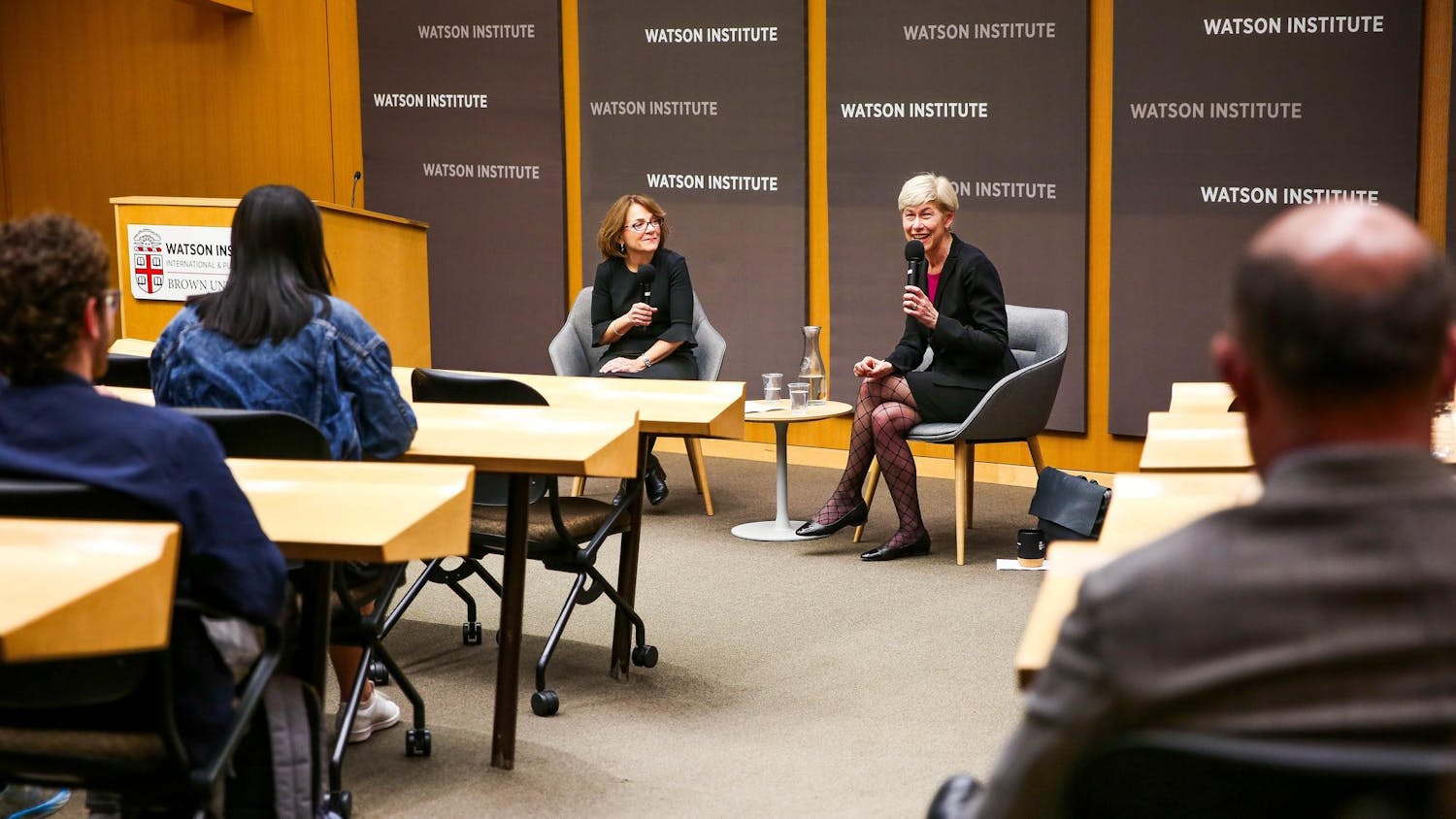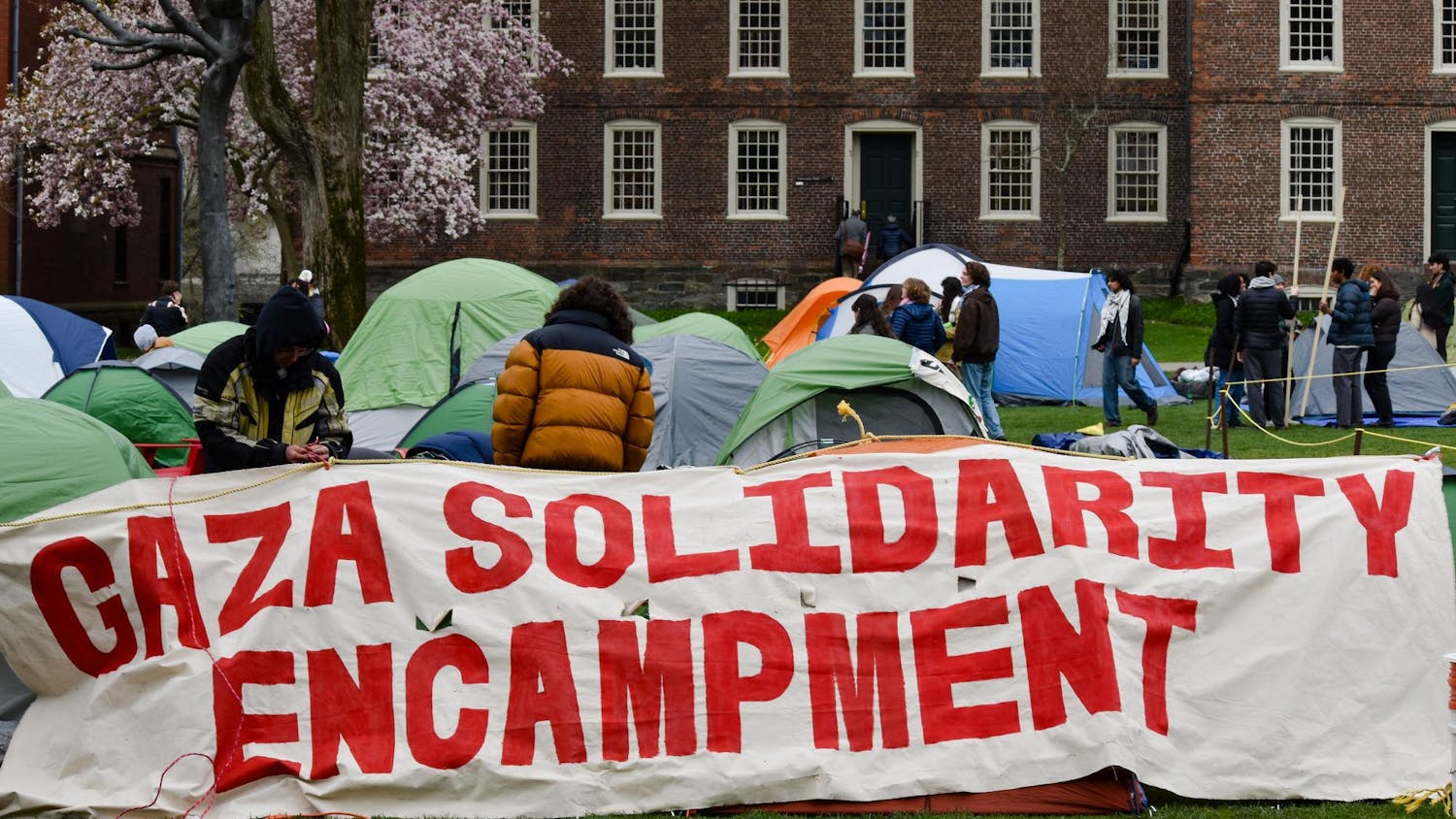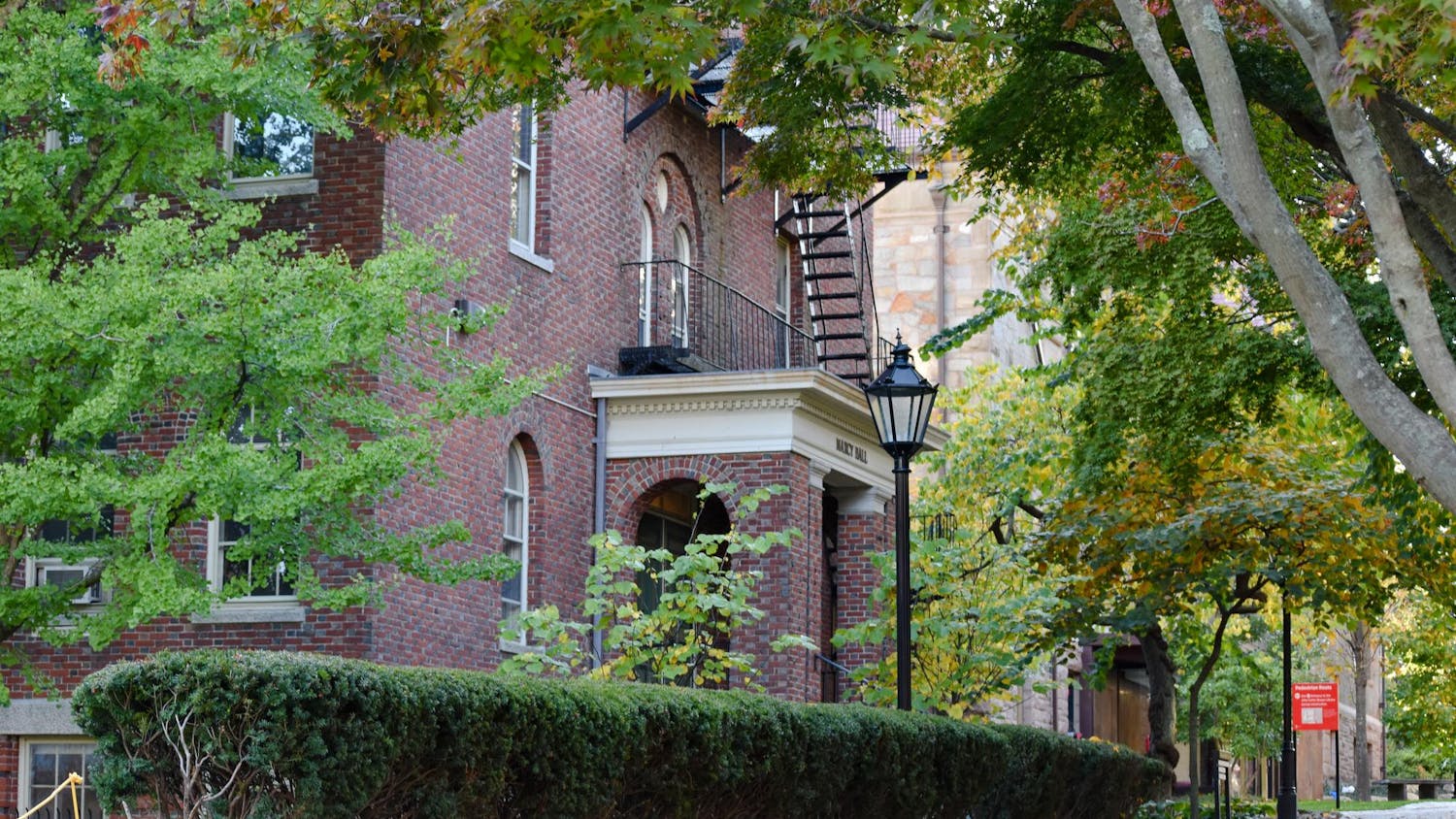Policymakers should focus on supporting economic development rather than participating in military action in the Middle East, said David Rohde ’90, a two-time Pulitzer Prize-winning journalist, at a lecture Wednesday.
Rohde addressed the United States’ evolving relationship with the Middle East at the lecture, which was held at the Watson Institute for International Studies and was attended by around 50 people.
The talk was part of the Watson Institute’s Global Security Seminar Series and was followed by a question and answer session. Rohde also signed copies of his new book, “Beyond War: Reimagining American Influence in a New Middle East,” after his talk.
Rohde discussed past U.S. actions in the Middle East and how policymakers can apply lessons learned from the wars in Iraq and Afghanistan to formulate current strategies in the region.
“Muslims have largely rejected Al Qaeda’s message,” Rohde said, adding that Islamic extremists’ use of terror has led to backlash from more moderate Muslims. Terrorists “have killed many more Muslims around the world than Americans,” but the media does not extensively cover violence against other Muslims, he said.
Rohde’s newest book focuses on civilian efforts in the Middle East and how governments and journalists often overlook the opinions of moderate Muslims.
The U.S. spent $1.2 trillion in Iraq and Afghanistan, and 95 percent of these funds went to military efforts, Rohde said. “Washington is broken in so many ways,” he said, calling the federal government an “atrophied, risk-averse institution.”
Rohde criticized the flow of money from government officials to private contractors in U.S. operations in the Middle East. Private contractors are less of a political risk and can conduct more dangerous activities because they are not federal employees, he said.
Rohde suggested the reliance on contractors is flawed, adding that the government should instead fund small start-ups and invest in Middle-Eastern economies in various ways.
Rohde cited as an example a business plan competition in Tunisia in which young people pitched their ideas for start-ups to a delegation from the U.S. embassy and the Microsoft corporation.
When delegation members picked the competition’s winner, they discovered they had to provide a prize themselves because the U.S. government had not provided any prize for the winning idea, Rohde said, using the anecdote to argue that the U.S. does not devote enough attention to the region’s economic development.
Former U.S. Secretary of State Hillary Clinton proposed an idea called “economic statecraft” that would devote U.S. resources to helping create jobs in the Middle East to stabilize the region, but this approach was defeated by Congress, Rohde said.
He condemned military intervention in the Middle East, adding that “a more economic and less military approach to this region is the way to go,” but this shift is impeded by “ideological paralysis in Washington.”
“We’ve got the best tech industry in the world,” Rohde said. “We’ve got the best venture capitalist system in the world. … Economic growth is the best way to address challenges in the region.”
An investigative reporter for Reuters, Rohde won the Pulitzer Prize in 1996 for covering the Srebrenica massacre in the Bosnian War and in 2009 for covering Afghanistan and Pakistan. Rohde escaped from the Taliban after a seven-month period of captivity that lasted from late 2008 and early 2009 in Afghanistan.
Rohde said his interactions with civilians and reporting have led him to believe the U.S. should make a greater effort to work with the region’s populations.
The situation in the Middle East is “a high-stakes political struggle,” he said. “We should do more than just carry out ground strikes.”
Rahel Dette ’13, a political science and Middle East studies concentrator who attended the talk and said she has heard Rohde speak in the past, called the journalist “extremely approachable.”
“It’s incredibly inspiring that he is a Brown graduate,” Dette said, adding she found his talk to be a refreshing change from the usual academic angle of lectures at the University. “I like how he focuses on stories and anecdotes … (that’s) what I love about talks like this,” she said.
ADVERTISEMENT




